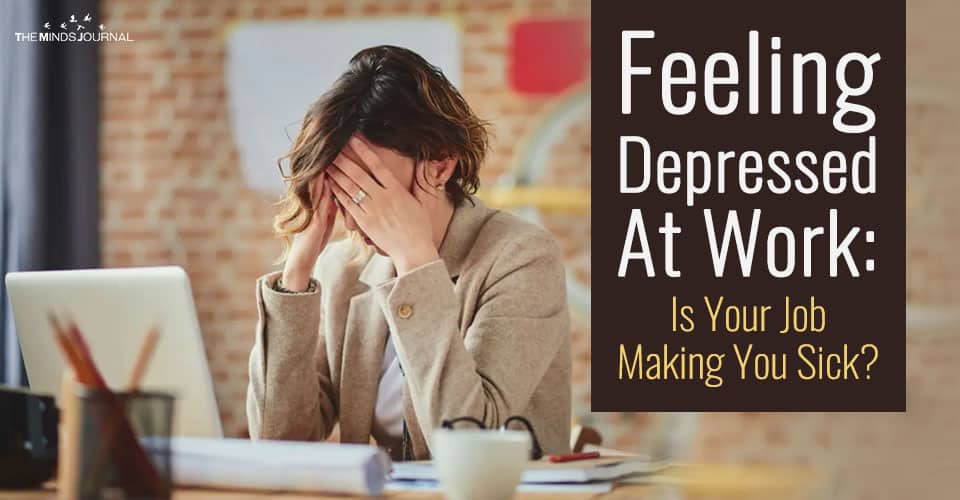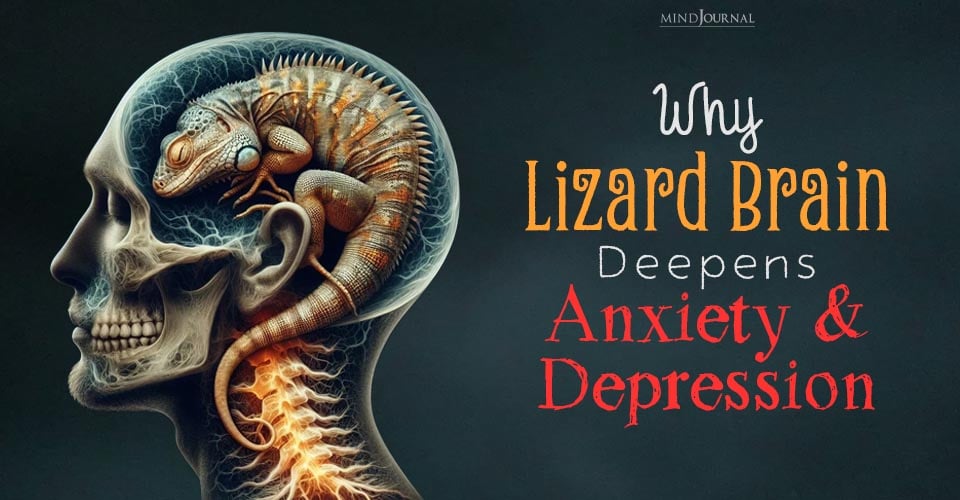Are you finding that you are feeling depressed at work? Are you finding it hard to get out of bed in the morning? Do you dread the idea of interacting with your co-workers? Is concentrating on your work increasingly difficult?
If you answered yes to any of my questions, or if the ideas at least seem familiar, then it could be that feeling depressed at work is a thing and that it could affect your health and your happiness.
How do you figure out if you are feeling depressed at work or it’s something else? If it is about work, what part of work is it about or is it just the whole thing?
There are a few questions that you can ask yourself that will help you figure out what’s going on.
1. What’s happening outside of work?
The first thing to ask yourself is what is going on in your life outside of work.
Has something big happened in your life? A relationship break-up? The death of someone you were close to? Some kind of financial shift? Anything else that might cause you to be overly stressed out?
When we get depressed about one thing, our depression can spread to other areas of our life. It’s like a tornado that starts small but captures everything up in its path and becomes increasingly damaging.
So, it is possible that there is something else going on in your life that is making you depressed but the depression shows up most during those long working hours because they might be stressful or boring.
2. Are you depressed when you aren’t at work?
A big question to figure out whether you feel depressed at work is really about the work is to ask yourself if you are feeling depressed outside of work.
Do you wake up on a Saturday morning feeling like you can take on the world? Are your Sunday mornings full of fun and good food and time with friends?
Do these good feelings carry over until Sunday night or Monday morning when you are filled with hopelessness and dread at the idea of going back to work?
If you are feeling depressed at work but feel otherwise fine about your life then it definitely is possible that work is, in fact, the source of your depression and that is something to take a good hard look at.
3. Do you get along with co-workers?
Ok, so you have figured out that your feeling depressed at work is about work and not about the big picture of your life. How do you figure out what it is about work so that you can to fix it?
A big part, for some people, of feeling depressed at work is that they don’t get along with their co-workers, or even one co-worker in particular.
I have a client who loved her job and loved the people she worked with but her boss was not a nice guy. He would torment her regularly and she felt constantly in fear of losing her job. This conflict made her depressed about her job and everything else in her life.
In spite of the insecurity that she felt about her ability to do her job, insecurity that was created by her boss being so hard on her, my client took the initiative to find a new job. She found a job very similar to the one she has before but with a boss who was kind and supportive. Her depression disappeared.
We spend a lot of time at work every week and a lot of time with our co-workers. If there are issues with some or all of our co-workers then it’s important that we either try to work things out or get a new job.
Think about what you can do to change your relationships with co-workers if necessary. It could really help you manage your depression at work.
4. Do you like what you are doing?
Another part of feeling depressed at work is that you might not like what you are doing.
I remember when I was working at the front desk at a hotel I loved my job when it was busy but I hated it when the times were slow. I had to stand behind the desk, smile at people walking by but in general was bored and got in my head. As a result, I started feeling depressed about my job.
I loved my job, though, and didn’t want to leave it so I set out to figure out what I could do to make my job less depressing during downtimes. I asked around and learned that I could help the concierge group with managing local information brochures. I would figure out what we needed, copy them and fold them. I know it doesn’t seem like much but it was far better than just sitting there.
Once I found a task to do I was able to be happier at my job.
So, do you like your job? Does the prospect of doing what you are doing now for the next few weeks or months fill you with dread or joy?
If you don’t love what you are doing, see if you can change it, either by tweaking it where you are working now or finding something new!
5. Does the idea of a new job improve your mood?
Ok, pause a minute and think about what it would feel like if you had a new job.
If, when you woke up in the morning, you liked where you were going to spend the next 8 hours. If your co-workers were good and your commute was doable.
How would that feel? Does the thought give you a feeling of elation or a feeling of hopelessness?
If it’s the first, it could be that it’s your job that is making you depressed and a job change could change everything. If it’s the second, I am guessing that you are depressed outside of your job and a job change won’t make a difference.
Feeling depressed at work is something that is really hard to deal with because work takes up so much of our life.
There are some ways to tell if you are depressed because of work or if it’s something else. These questions should help clarify for you.
If, after answering these questions, you see that you are not depressed because of work then it’s important that you see your primary care doctor as soon as possible to see about treatment for your depression. Depression will get worse the longer it goes untreated so do it now!
If the answers to your questions indicate that it is work that is making you depressed, make an effort to change it, either by adjusting your job where you work now or seeking a new one.
Life is too short to spend it being depressed. Make the change now so that you can be happy.
You May Also Like:
- 5 Tips To Help You Stay Focused At Work
- 13 Tips To Motivate Yourself To Exercise After Work
- Six Ways To Improve Productivity At Work
- 8 People Skills You Need To Succeed In Your Work & Relationships
- How to Keep Moving on When You’re Feeling Depressed










Leave a Reply